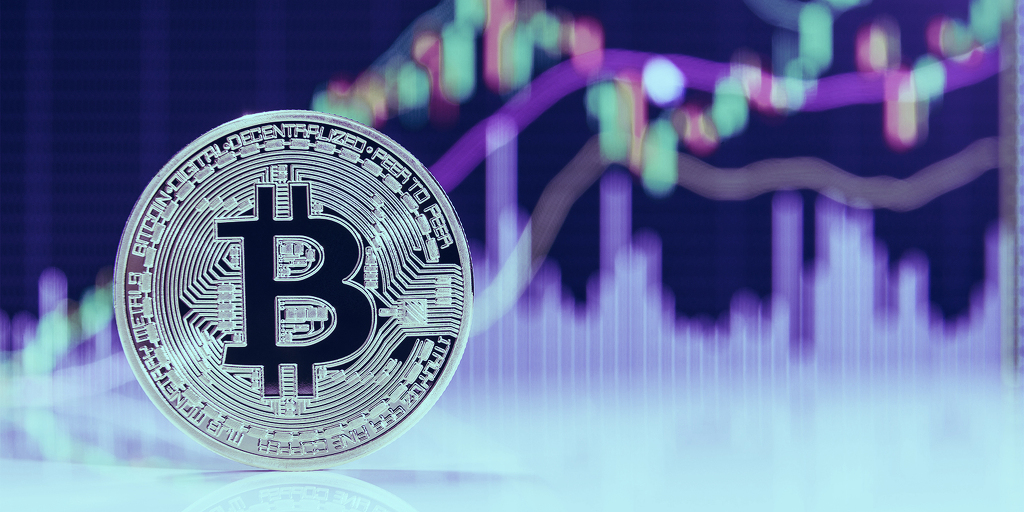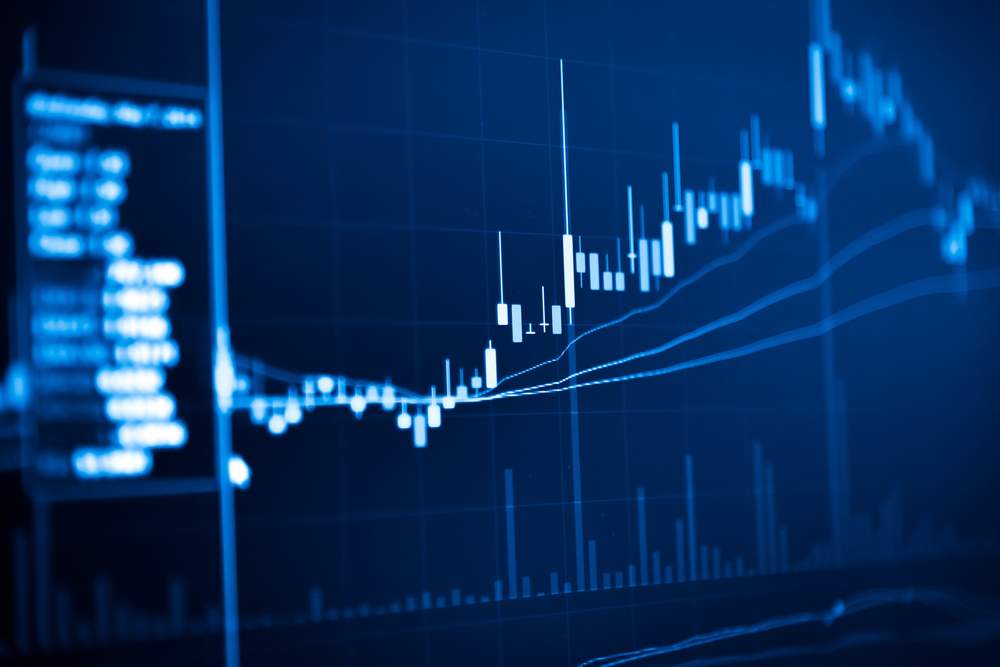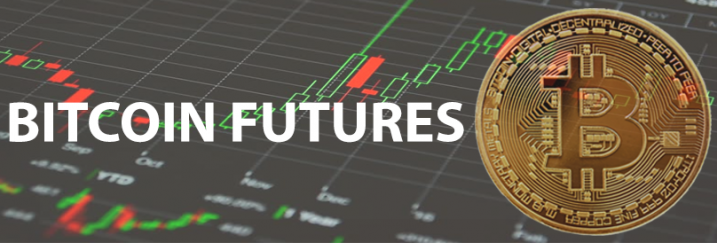
The past few weeks have seen a lot of price action in the crypto markets. The price of Bitcoin surged to within 0.9% of its all-time high before undergoing a price correction, which sent it down below the $17,000 price line. However, with crypto and Bitcoin trading being a hot topic once again, there are a lot of expectations and uncertainty about the future price of Bitcoin. As such, this can be a great time to learn more about Bitcoin futures.
Futures are, broadly speaking, financial instruments that allow users to speculate on the future price of an asset. Although this can sound similar to actually owning the asset, there are some specifics of Bitcoin futures that make them more suitable to hold in certain situations, compared to actually holding Bitcoin. What’s more, if you already own Bitcoin, investing in Bitcoin futures can still give you some financial flexibility inherent to these financial instruments.
For example, Bitcoin futures generally trade on an exchange regulated by the Commodity Futures Trading Commission (CFTC). This can make trading crypto futures more suitable for e.g. institutional investors than actually investing in altcoins and crypto and holding the actual coins and tokens. Looking to learn more about the different forms of crypto futures and various types of financial instruments available in the cryptocurrency market? If so, you should enroll in Ivan on Tech Academy.
All types of investing are inherently risky, and you should think about what risk profile you want your investments to have. Nevertheless, learning about trading mechanisms, the underlying assets, and understanding how markets work are the easiest ways to lower your risk. Enroll in Ivan on Tech Academy, one of the largest blockchain education platforms, to access courses like Technical Analysis, Algorithmic Trading, or Crypto Basics!
What are Bitcoin Futures?
Before we get into the nitty-gritty details of Bitcoin futures, let us look at the fundamentals of crypto futures and answer the question “what are Bitcoin futures?”. Put simply, Bitcoin futures are Bitcoin-tied equivalents of any type of future derivatives. Don’t let terms such as “derivatives”, “financial instruments” and “leverage” come in the way – understanding Bitcoin futures is actually relatively straightforward.

Bitcoin futures enable investors to get exposure towards Bitcoin (essentially, invest in Bitcoin) without actually having to hold it. Put simply, this means that people holding Bitcoin futures don’t need to own actual Bitcoins – instead, the Bitcoin futures contract acts as a representation of the asset ownership. Nevertheless, what’s up with the name “futures”? Well, Bitcoin futures – as the name suggests – also allows you to speculate on the future price of Bitcoin.
Without going into too great detail, a futures contract acts as a legal agreement to either buy or sell a certain asset at a specific price at a specific time in the future. As such, this means that buying a Bitcoin futures contract is essentially speculating on the price of Bitcoin at some point in the future. If you buy a futures contract, you are agreeing to – at the specified time – buying the underlying asset (in this context Bitcoin) when the contract expires. If you sell a Bitcoin futures contract, you instead agree to provide the underlying Bitcoin asset to the buyer at the contract’s expiration date.
As such, Bitcoin futures can be understood as a type of representation of Bitcoin. Bitcoin futures effectively divorce ownership of the specific asset Bitcoin with getting exposure towards the asset class. This means that an investor can use Bitcoin futures in order to profit from the Bitcoin market or Bitcoin price, without necessarily actually holding the asset. This can be preferable in certain situations.
How do Bitcoin Futures Work?
As we’ve already explained, Bitcoin futures don’t really differ from that of grain futures, oil futures, or any other assets. The only practical difference between these futures contracts and Bitcoin futures is that Bitcoin futures have Bitcoin as the underlying asset. Seeing as Bitcoin is a digital asset class, this makes any physical delivery of the asset – which is often the case, e.g., with grain futures – impossible. Instead, Bitcoin futures feature settlement in cash (most often USD).
Therefore, let’s see how Bitcoin futures work in real-life. Let’s speculate that Bitcoin just fell to $15,000 from $19,000. You want to get some Bitcoin at this price, but for one reason or another, you are unable or unwilling to invest in actual Bitcoin. With a Bitcoin futures contract, you can enter into an agreement with another trader. Let’s assume that you agree to buy one Bitcoin for the current price – $15,000 – in March of 2021. Likely, this would mean that the seller of the contract believes the price of Bitcoin will go down below $15,000 until March.

Nevertheless, after the contract is signed, you will have an agreement in March to exchange the futures contract – and the Bitcoin – for $15,000. Even if Bitcoin’s price would rally to $25,000 until then, the seller would still be obliged to sell the Bitcoin asset to you in March for $25,000. If, on the other hand, the price of Bitcoin would collapse to $10,000 in March of 2021, you would still have to buy the Bitcoin asset through the Bitcoin futures contract for $15,000.
Advantages of Bitcoin Futures Trading
So, all of this might make you ask – why trade Bitcoin futures instead of regular Bitcoin? The answer to this lies in that Bitcoin futures are generally more flexible financial instruments than that of merely owning Bitcoin. Holding – or hodling – actual Bitcoin is great in a variety of cases. Nevertheless, there are some specific use cases where Bitcoin futures actually present a number of advantages compared to holding regular Bitcoins. As such, let’s dive deeper into the concept of Bitcoin futures and look at some of the advantages of Bitcoin futures trading!
First and foremost, one of the major reasons for investing in Bitcoin futures is that it partly avoids regulations. Some people may not be able to hold Bitcoin due to complicated local regulations. Futures, however, are regulated by the CFTC. Big financial firms are big fans of investing in futures, and have experience trading futures.

Another major reason for investing in Bitcoin futures is that investors can make money in a bear market. Although the last few weeks have seen a decidedly bullish market, there are always drops in the price of any asset. Investors can use Bitcoin futures to short sell the market – essentially “bet against” Bitcoin in the short run – to profit from price corrections. However, it is worth noting that short selling is always a risky endeavor and something you should think twice about doing if you are not an experienced trader.
Even experienced traders should also make sure first to attend Ivan on Tech Academy courses to learn the basics of trading. Learning more about financial markets and how they work can reduce your risk when dealing with financial instruments and trading any asset. Ivan on Tech Academy features dozens of cryptocurrency courses – and you can get 20% off when using the code BLOG20!
CME Bitcoin Futures
Back in 2017, you may recall that Bitcoin and the wider cryptocurrency market was experiencing an intense price rally. In fact, late 2017 saw Bitcoin reach its all-time high of $20,000 – although it has recently come close to breaking that high. Nevertheless, this frantic period of crypto hype saw CBOE and the CME (Chicago Mercantile Exchange) launch their own Bitcoin futures. So, what made the CME Bitcoin futures so special?

First of all, the CBOE and CME Bitcoin futures were some of the first Bitcoin futures to ever launch, back in December of 2017. What’s more, this offered investors a way to own Bitcoin indirectly. Consequently, investors who would not be able to buy and hold actual Bitcoins in a digital wallet could still get exposure in this burgeoning industry. A CBOE Bitcoin futures contract represented one Bitcoin, while CME Bitcoin futures contracts represented five Bitcoin.
The main reason people still talk about CME Bitcoin futures is due to the fact that CME is the world’s largest futures exchange. As such, they have a lot of experience handling futures in other asset classes, such as gold, oil, silver, and platinum. Consequently, the CME Bitcoin futures did not only show that Bitcoin futures were a viable financial instrument. Their introduction also showed that established futures exchanges like CME were waking up to the reality that cryptocurrencies were coming onto the financial markets scene to stay.
Do Futures Affect Bitcoin?
Before Bitcoin futures were initially introduced with the CBOE and CME Bitcoin futures, some people were skeptical of its impact. Specifically, certain observers thought Bitcoin futures would introduce widespread price manipulation. Nonetheless, this was not the only theoretical impact of opening up Bitcoin futures trading.
Bitcoin futures also meant that institutional investors had an easier way to invest in Bitcoin than ever before. Some people watching the markets thought this could potentially mean that Bitcoin futures would let the price of Bitcoin rally. Although December of 2017 saw a massive uptick in Bitcoin’s price, recent price developments in 2020 have shown that there is price support for the price of Bitcoin at levels around $20,000. As such, Bitcoin futures seem to have had a minor effect on the price of Bitcoin, despite concerns that this could skew the market.

This is, in and of itself, not too surprising. The historical introduction of, for example, gold futures did nothing to impact the global price of gold. What’s more, Bitcoin futures are arguably “balanced” in the way that there is a willing buyer and a willing seller. Nevertheless, Bitcoin futures can naturally have slight and minor effects on the price of Bitcoin. Bitcoin markets, just like any type of trading, are driven by market sentiment and this can shift due to human psychology, hype or FUD.
Bitcoin Futures Conclusion
Consequently, Bitcoin futures represent a useful asset class for gaining Bitcoin exposure. Some investors are either unable or unwilling to hold actual Bitcoins, and Bitcoin futures provide a handy solution for them to have Bitcoin exposure still. This is also far from something completely new. Futures contracts have been around for a long time, and for a lot of the same reasons.

Historically, investors would perhaps like to gain exposure to gold as an asset class. However, owning gold was cumbersome, and it could be hard to protect one’s gold. As such, physically holding the gold was less than ideal. Instead, gold futures became an easy workaround to still have exposure towards gold without the need for a private vault to keep the gold in.
There are obvious parallels between that and Bitcoin, which is sometimes referred to as digital gold. Nonetheless, you should always stay careful and vigilant when dealing with financial instruments such as Bitcoin futures. Make sure to enroll in Ivan on Tech Academy before trading Bitcoin futures, and join over 30,000 students already learning about cryptocurrency and blockchain. What are you waiting for? Kickstart your crypto career today!





